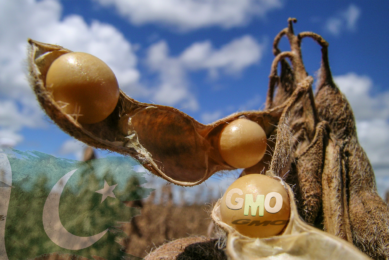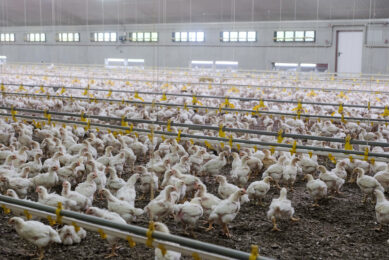Research: Yeast protein concentrate helps in heat stressed broilers
Scientists at the West Bengal University (India) in cooperation with AB Vista investigated the effects of yeast and yeast protein concentrate on production performance of broiler chickens exposed to heat stress and challenged with Salmonella enteritidis.
An experiment of 35 d duration was conducted to evaluate the effects of dietary supplementation (1 g/kg) of yeast (Saccharomyces cerevisiae), yeast protein concentrate (YPC) and YPC-pellets on production performance of heat stressed broilers
Trial setup
For this experiment 128 Cobb 400 broilers were used. Ambient temperature was constantly maintained at 32–34C. At 21 d, all the birds were orally challenged with Salmonella enteritidis (10 × 107 cfu/ml) and the numbers of total Salmonella were enumerated in excreta at periodic intervals.
Results
Dietary supplementation of YPC and YPC pellets improved body weight at 21 and 35 d of age and FCR in 35 d.
Salmonella numbers decreased in the pooled digesta and excreta due to dietary supplementation of yeast and YPC additives particularly in the YPC-pellets group.
E. coli numbers in digesta also decreased in the treated groups. Humoral immune response against Newcastle disease was improved by dietary supplementation of YPC and YPC-pellets at 14 d, 28 d and 35 d.
The effect of dietary yeast supplementation on humoral immune response was evidenced on 35 d of age. Severity of panting was comparatively less when the YPC additives were supplemented in diet and this was corroborated by a lower serum CO2 concentration in the YPC and YPC-pellets groups at 21 d of age as compared with the control.
Supplementation of YPC and YPC-pellets increased serum T3 level at 21 d and decreased serum cortisol at 21 and 35 d vis-à-vis the control group.
Yeast supplementation was also as effective as the YPC additives in reducing serum cortisol level. Villus height increased by supplementation of YPC-pellets as compared with the other dietary groups although the implication of this increment was not discernible in terms of production performances.
Conclusion
Although, converting the yeast protein concentrates into YPC-pellets did not offer any substantial advantage in terms of enhancing production performance of the heat stressed broilers, it may be concluded that YPC additives may effectively sustain the production performance in heat stressed broilers than the conventional yeasts probably by modulation of the levels of circulatory thyroid hormones and cortisol.
Full research was published in Animal Feed Science & Technology (Aug 2011)











